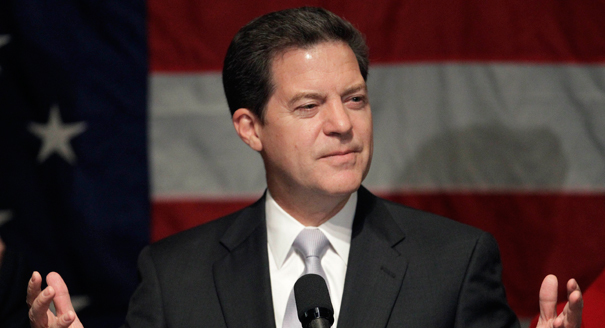With the pending implementation of President Obama’s health care law, state governments are working furiously to get a handle on what it will mean to expand government-subsidized healthcare to millions of people. In Kansas, the debate has spurred studies from an array of organizations, each reading the proverbial tea leaves and developing their own conclusion.
But according to Jagadeesh Gokhale, a senior fellow at the libertarian Cato Institute, with so many experts offering such varied predictions, very little is actually certain.
“What’s going to happen is utter chaos,” said Gokhale.
Speaking before a crowd of legislators, media, and policy analysts at a recent public forum, Gokhale was joined by Scott Brunner, senior analyst for the Kansas Health Institute, and Kari Bruffett, director of the Division of Public Health for the Kansas Department of Health and Environment. The panel discussed the myriad studies attempting to estimate the potential costs of implementing the ACA and expanding Medicaid in the Sunflower state.
In a March 8 interview with Yahoo News, Kansas Gov. Sam Brownback said he believes the cost of expanding Medicaid eligibility is “really high for us and I can’t believe the [federal] government can handle that price tag,” adding that “It looks to me like sometime in next 3-5 years the bill probably goes up for states because the [federal government] runs out of money.”
Studies, Estimates Vary Widely
Studies conducted by KHI, Lewin Group, United Health, and others offer differing price projections, primarily because of different assumptions about the many variables that go into calculating who is eligible and who is likely to join the state-sponsored healthcare program.
For Kansas, base changes mandated by the ACA over the next six years could cost anywhere from $170 million to $740 million, and the optional Medicaid expansion could run between $1.9 billion and $5.4 billion, depending on who you ask.
“There’s a lot of uncertainty about even how it’s going to be implemented, whether you choose expansion or not,” said Brunner. “[The studies] vary quite a bit, depending on the key assumptions that you make.”
Although Bruffett agreed there’s no way to be sure when dealing with so many variables, she said each study, especially KDHE’s, was conducted using the most recent available data; figures weren’t plucked out of thin air, but instead constitute an educated guess using the best available information.
Gokhale said he expects chaos to erupt from individuals choosing to pay fines rather than sign up for health insurance and then getting insurance when a need arises. He offered a final caution on the cost studies.
“Even the most pessimistic projections assume nothing goes wrong, and that the federal government makes good on its funding promises,” he said.
Travis Perry ([email protected]) writes for Kansas Watchdog.




